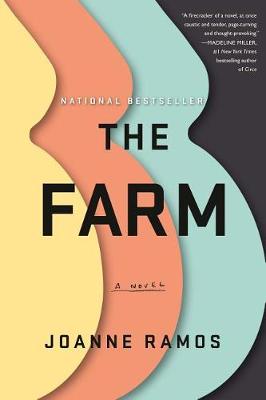
Veronica 🦦
Written on Aug 31, 2020
Now, before I get into the rest of this review, please note that this is an #ownvoices review. I make this statement as a Filipino immigrant living in NYC with a Filipino mother who made the move here to the US before sending for me so I could have a better life here.
I think that this book will be uncomfortable for many reasons.
It forces us to examine our beliefs on parenthood, surrogacy, immigration, and wealth. The book grabs our heads and legitimately forces us to examine what the American Dream actually means. We are all forced to confront the fact that we are not free. We are all bound by something: responsibilities, economic status, social status, and family.
For some Americans, it will also force you to look at this country’s collective hero complex and how many people believe that they are the heroes. It will also make you question whether you are playing a hero to actually help those in need or simply to make yourself feel better. It forces the rich especially to confront how they speak about Filipinos and other human beings as well as examine how they “share” their wealth.
For Filipinos, it will force us to confront the truth that for the first generation Filipinos who emigrate here, life can be uncomfortable and hard. We are forced to see that our parents, grandparents, and other relatives who moved here first made a lot of sacrifices for their family, even if it meant taking shit from everyone else. Why do they do it? For their family.
It also shoves it into our faces that it’s not just the rich Americans who are exploiting our people. Rich Filipinos are also exploiting our people — bringing women and men from the homeland with promises of money, a job, and a roof over their heads — only to deny them of those promises while extracting labor from them nonetheless.
This book makes you do a double-take and question: What is the American Dream?
I wanted a better ending for Jane. But given the circumstances, I think it works. Jane’s version of the American dream is to provide a stable future for her daughter. It’s why she started this journey in the first place: for her daughter. Will it bite her in the hypothetical future? Perhaps!
I have no doubt that Amalia will be hiding her mother’s real job, that she’d reach a point where she’d be ashamed of her mother and what her mother is doing for money. I’m sure that she’d lie to her classmates and say her mom is a nurse (and yes, she’ll emphasize nurse because she’d be too ashamed to admit her mother is a nanny/caretaker). There is no doubt in my mind that Amalia — like many readers — will never understand why.
Yes, Jane deserved a better ending.
She deserved to be able to run off with her daughter with enough money to support them so that maybe she can get her GED and go to college. But this ending she got worked. She might not be rich. She might not be getting her degrees or living in an apartment in Forest Hills. However, her daughter has a roof over her head, clothes on her back, food in her belly, access to toys she might never have had otherwise, and a relationship with a woman who has taken an interest in her and her future.
This is Jane’s American Dream.
For the longer version of this review (which will be posted 01 Sept. 2020), check out my blog, moon & coffee.
